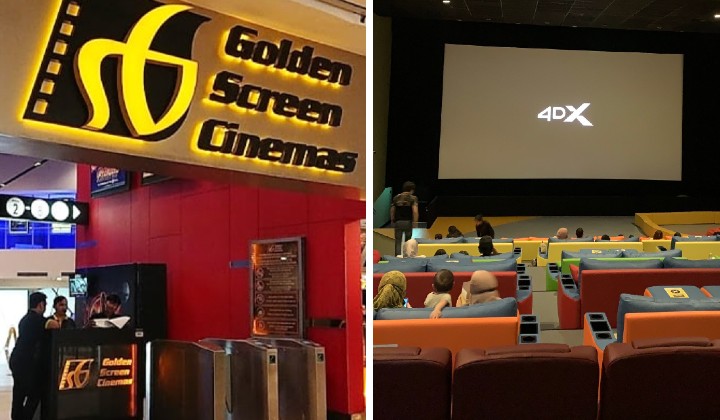Breaking Stereotypes: ‘Abang Adik’ Shines Light On Underserved Malaysian Chinese Communities
The narrative of “Abang Adik” is a stark departure from the common depictions of Malaysia’s ethnic Chinese population, often associated with economic prosperity and business acumen.

Subscribe to our FREE Newsletter, or Telegram and WhatsApp channels for the latest stories and updates.
The latest Malaysian film, “Abang Adik,” is stirring a national conversation by portraying the seldom-seen struggles of poverty within the Malaysian Chinese community.
Directed by Jin Ong, the film departs from the typical narratives that paint the community in broad strokes of economic success and cultural assimilation.
The film challenges prevailing stereotypes and offers a raw depiction of marginalization.
“Abang Adik” tells a compelling story of two brothers bound not by blood but by shared hardships and the pursuit of identity within the tapestry of Malaysia’s complex societal fabric.
The film’s exploration of statelessness and the struggle to obtain legal recognition as an identity card (MyKad) has resonated with viewers, shedding light on the often invisible barriers that segment parts of this community from the national narrative of prosperity and unity.
Netizen’s Revelation: ‘Abang Adik’ Challenges Misconceptions About Malaysian Chinese Community
For some, due to limited life experiences and surroundings, it’s hard for them to associate the Malaysian Chinese community with poverty.
Perhaps it’s because they often see Malaysian Chinese people as hardworking and successful in business, leading to a good life.
Maybe it’s because they don’t come across Malaysian Chinese who are impoverished, illiterate, caught in drug addiction, trapped in gambling activities, or in and out of prison.
‘Orang cina ni semua kaya raya berada; bangsa melayu kita pulak miskin dan B40” https://t.co/J6P1rjobmf
— ng(Gua+Pi) (@guangpingxx) November 10, 2023
In a recent social media post, netizen Sharifah Sharina Syed Aswad expressed her thoughts on the film, cautioning against potential spoilers but emphasizing the importance of its subject matter.
She shares her personal experiences that resonate with the film’s narrative, addressing the common misconception that the Chinese community in Malaysia is universally affluent and successful.
Sharifah recalls her time teaching reading skills in Seremban Prison, where she encountered an elderly Chinese inmate repeatedly incarcerated due to a cycle of drug abuse and homelessness.
His story is a testament to a hidden reality where prison becomes a refuge for some without family or employment prospects.
The Hidden Plight of the Stateless in Malaysia
The narrative of “Abang Adik” delves into the harrowing issue of statelessness, charting a protagonist whose quest to secure a Malaysian identity card is fraught with challenges.
Amplified by the character’s deafness and the absence of family ties, the film poignantly captures the essence of human resilience against the backdrop of systemic obstacles.
The silence that envelops the main character’s life serves as a metaphor for the muted struggles faced by those marginalized by bureaucratic indifference and societal oversight.
“Abang Adik” transcends its role as mere cinema, emerging as a potent commentary on the unseen trials within segments of society.
The film beckons audiences to engage in a deeper discourse on the entanglements of identity, the yearning for a sense of belonging, and the pervasive issue of social neglect.
Movie Abang Adik bukan pasal pati haram. Abang Adik mengenai budak budak yg dh lahir dekat Malaysia. Tapi tiada dokumen. Stateless people…lain benor dgn pendatang haram. https://t.co/dq41AXScy9
— George Orwell (@Tianglektrik) December 21, 2023
Challenges of Identity: A Deaf Brother’s Struggle in the Market
In “Abang Adik,” the film poignantly illustrates the older brother’s dim prospects for acquiring an identity card in Malaysia—a crucial marker of citizenship.
Orphaned and without documentation, the question looms: who can vouch for his birthright within the nation’s borders?
The character’s deafness adds to his vulnerability, forcing him to rely solely on his physical resilience and work ethic.
The narrative takes us into the bustling marketplace where he toils, lifting goods for a living, competing with foreign workers in an unforgiving job market.
His employer’s promise of RM50 dwindles to a mere RM30 in hand.
To protest is futile; complaints fall on deaf ears in a society indifferent to his plight.
The stark reality is clear: raise your voice and risk being replaced—many others are ready to fill his shoes in silence.
Semalam tengok ABANG ADIK ni.
— POKSU (@NikShariff92) December 21, 2023
Org sebelah nangis teresak-esak weh 😭
Nasib aku control lg😂🥲
No wonder movie ni menang byk awards, mmg mantap lah. Realiti pahit getir kehidupan. Keluhan si Abang tu buat aku terfikir, Org yg ada kesedaran utk ubah nasib diri tp tak dpt peluang… pic.twitter.com/gdd3O3945h
From Local Acclaim to Global Impact: ‘Abang Adik’ Sparks Conversations Worldwide
The film “Abang Adik” has garnered widespread critical acclaim for its stark portrayal of pressing social issues, igniting conversations on various platforms.
Its acknowledgement at international venues, particularly with its significant participation at the Fribourg International Film Festival, highlights the film’s international resonance and the broad appeal of its narrative.
Filem #AbangAdik (2023) menang 2 anugerah di Fribourg International Film Festival (Switzerland) semalam:
— FILEMKITA (@FilemKita) March 26, 2023
Ecumenical Jury Award
Audience Award
Sebagai pemenang, ia ditayangkan sekali lagi sekarang (pukul 4 petang di sana) dalam tayangan 'full house' pic.twitter.com/TjVU5VIJ0E
READ MORE: Malaysian Director Jin Ong’s Abang Adik Wins 3 Awards At Italian Film Festival
As a reflection of Malaysia’s diverse society, the film uncovers the often-overlooked tales of adversity that some individuals endure.
“Abang Adik” is currently screening in Malaysian cinemas.
The film is expected to impact the international festival circuit, delivering its poignant message to audiences worldwide.
It reinforces the notion that behind the vibrant facade of multiculturalism, there are deeper stories of perseverance and hardship awaiting recognition.
Share your thoughts with us via TRP’s Facebook, Twitter, Instagram, or Threads.





